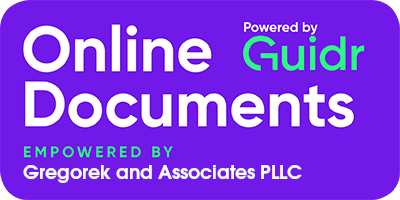Blog
Estate Planning for Social Media Accounts
It’s undeniable that we are living in a technology driven day and age. For most people, their day begins by checking their e-mail or scrolling through their social media accounts. However, have you ever thought what would happen to these digital assets if you passed away? Although planning for your financial assets is often the focus of any estate plan, it’s important not to overlook the importance of taking account of your digital assets as well.
Managing Social Media Accounts After a Loved One Passes Away
It may feel overwhelming to sit back and think of all of the digital assets that you may have. However, this is where an experience estate planning attorney will be able to guide you through the different variables associated with each type of asset. Regardless of the type of social media account or digital asset, a good rule of thumb is to make a list of the usernames and passwords for each account and leave them in a place where they can be easily accessible to either your Executor or a close friend or family member. However, this can be easier said than done at times. If you don’t leave this list before you pass away, your friends or family can still gain access to your e-mail or social media accounts, but the process could be trickier. Here is an overview of what your loved ones may be in for if you don’t leave behind your credentials:
Facebook is an example of a social media platform that tries to provide you with an abundance of tools that you can use to prepare your account for when you pass away. For example, Facebook has a feature called “Legacy Contact”. This is a person who will be designated to access certain features of your account when you pass away. This contact will be able to memorialize your account which means that your account remains active in certain ways so that your friends and loved ones can post meaningful tributes to you. If you don’t designate a legacy contact, your family can request that Facebook delete the account.
Instagram is similar to Facebook in the sense that your immediate family members can request to remove your account once they show that you have passed away. Your family can also request to turn the account into a memorialized account provided that they supply a copy of an obituary or a death certificate.
Twitter can be a bit more difficult when it comes to accessing an account that you don’t have the credentials for. In general, Twitter will only interact with a verified family member of the Executor or Administrator of the estate. The Executor, Administrator or family member will need to fill out a number of forms and provide the platform with a substantial amount of information before the account will be removed.
Although Google isn’t designated as a “social media platform”, there are countless people who have G-mail accounts or YouTube accounts that may need to be accessed after they pass away. You can set up these Google accounts in such a way where if the account is inactive for a certain period of time, you can designate contacts to access the account and all the data associated with it. If you do not set up this features, your family will need to go through the process of notifying Google so that Google can close the account.
Plan for Your Social Media Accounts and Digital Assets Today
Our estate planning attorneys understand the importance of developing an estate plan that revolves around taking your digital assets and social media accounts into consideration. Contact Gregorek and Associates, PLLC at 425-284-3450 or use the contact form on this page today to learn more about incorporating these important assets into your plan and how we can assist you.
